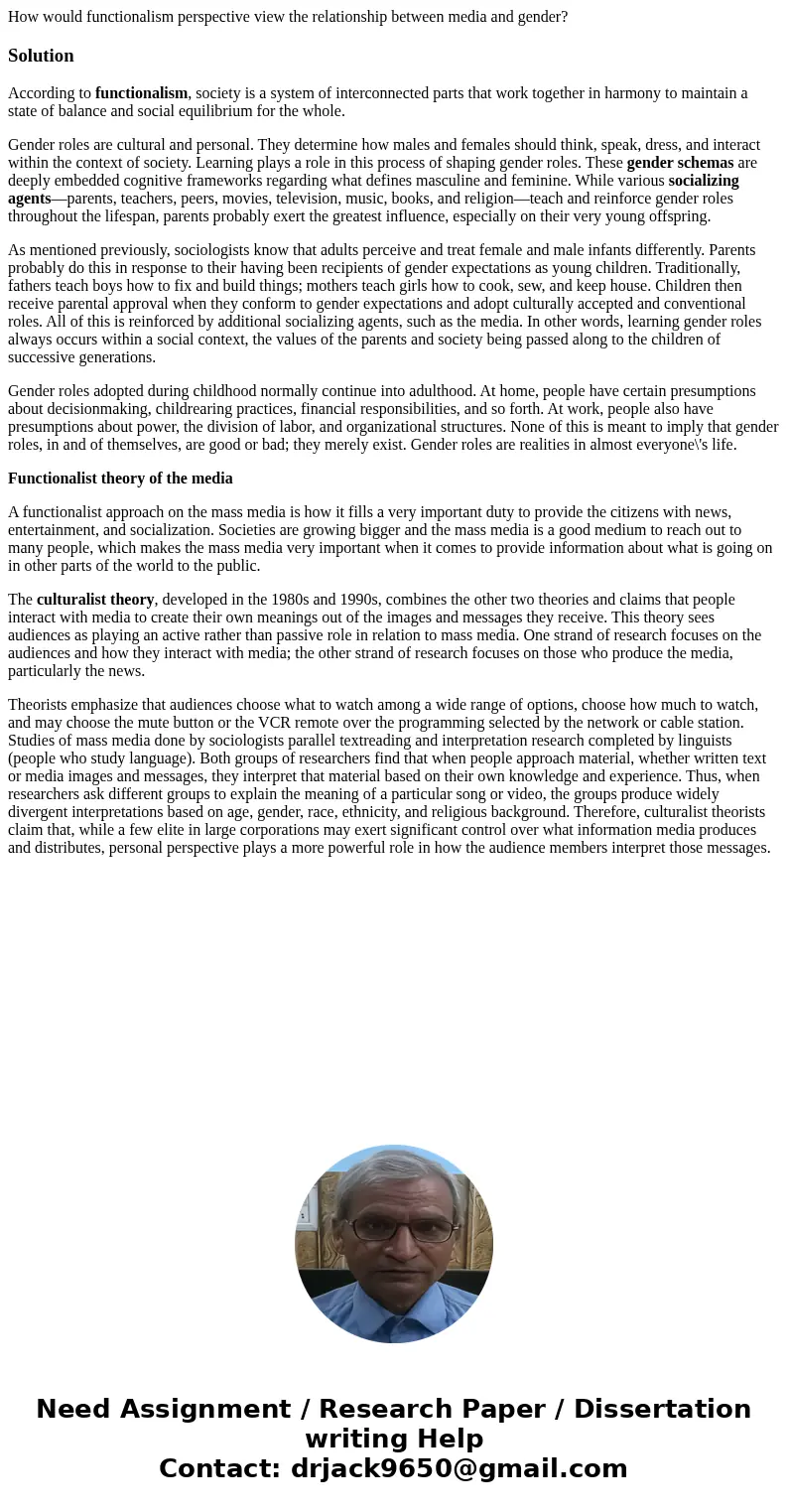How would functionalism perspective view the relationship be
How would functionalism perspective view the relationship between media and gender?
Solution
According to functionalism, society is a system of interconnected parts that work together in harmony to maintain a state of balance and social equilibrium for the whole.
Gender roles are cultural and personal. They determine how males and females should think, speak, dress, and interact within the context of society. Learning plays a role in this process of shaping gender roles. These gender schemas are deeply embedded cognitive frameworks regarding what defines masculine and feminine. While various socializing agents—parents, teachers, peers, movies, television, music, books, and religion—teach and reinforce gender roles throughout the lifespan, parents probably exert the greatest influence, especially on their very young offspring.
As mentioned previously, sociologists know that adults perceive and treat female and male infants differently. Parents probably do this in response to their having been recipients of gender expectations as young children. Traditionally, fathers teach boys how to fix and build things; mothers teach girls how to cook, sew, and keep house. Children then receive parental approval when they conform to gender expectations and adopt culturally accepted and conventional roles. All of this is reinforced by additional socializing agents, such as the media. In other words, learning gender roles always occurs within a social context, the values of the parents and society being passed along to the children of successive generations.
Gender roles adopted during childhood normally continue into adulthood. At home, people have certain presumptions about decisionmaking, childrearing practices, financial responsibilities, and so forth. At work, people also have presumptions about power, the division of labor, and organizational structures. None of this is meant to imply that gender roles, in and of themselves, are good or bad; they merely exist. Gender roles are realities in almost everyone\'s life.
Functionalist theory of the media
A functionalist approach on the mass media is how it fills a very important duty to provide the citizens with news, entertainment, and socialization. Societies are growing bigger and the mass media is a good medium to reach out to many people, which makes the mass media very important when it comes to provide information about what is going on in other parts of the world to the public.
The culturalist theory, developed in the 1980s and 1990s, combines the other two theories and claims that people interact with media to create their own meanings out of the images and messages they receive. This theory sees audiences as playing an active rather than passive role in relation to mass media. One strand of research focuses on the audiences and how they interact with media; the other strand of research focuses on those who produce the media, particularly the news.
Theorists emphasize that audiences choose what to watch among a wide range of options, choose how much to watch, and may choose the mute button or the VCR remote over the programming selected by the network or cable station. Studies of mass media done by sociologists parallel textreading and interpretation research completed by linguists (people who study language). Both groups of researchers find that when people approach material, whether written text or media images and messages, they interpret that material based on their own knowledge and experience. Thus, when researchers ask different groups to explain the meaning of a particular song or video, the groups produce widely divergent interpretations based on age, gender, race, ethnicity, and religious background. Therefore, culturalist theorists claim that, while a few elite in large corporations may exert significant control over what information media produces and distributes, personal perspective plays a more powerful role in how the audience members interpret those messages.

 Homework Sourse
Homework Sourse